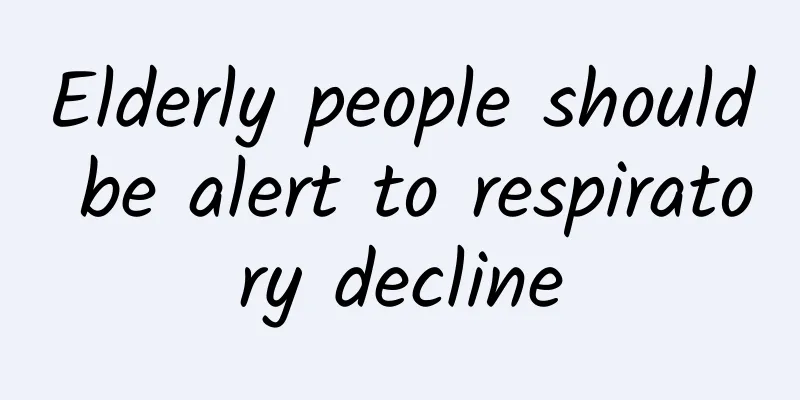Can watching the sunset make you sick? Uncovering the mystery of "Sunset Syndrome"

|
Grandpa Li, 93 years old, suffers from Alzheimer's disease. He is quiet on weekdays, but at sunset, he becomes very agitated and paces around the house. He often doesn't know who he is or where he is. He often points to the ceiling and says someone is watching him, which makes his family members feel terrified. In desperation, the family took Grandpa Li to the hospital for a checkup and was told that Grandpa Li actually had symptoms of "sundown syndrome." What is "sundowning syndrome"? "Sundowning syndrome" is a common phenomenon in elderly patients with dementia (especially Alzheimer's disease). Usually at sunset or in the evening, patients experience a series of behavioral and mental symptoms. These symptoms include confusion, loss of direction, anxiety, agitation, delusions and hallucinations, as if the patient's symptoms suddenly worsened at sunset. This phenomenon can last for several hours or all night. What causes "sundown syndrome"? The emergence of "sundown syndrome" is affected by the environment and seasonal changes, which may cause the patient's biological clock to be disrupted, and it is difficult to adapt to the early or late dusk. Second, the light in the evening is not good, and these patients have poor ability to identify the surrounding environment, and these stimuli may induce symptoms. Third, the patient drinks strong tea, coffee or takes certain drugs, sleeps too much, etc. In addition, when the caregiver is physically and mentally exhausted, if the attitude towards the patient is bad at this time, it will also cause irritation to the patient. What is the relationship between “sundown syndrome” and Alzheimer’s disease? "Sunset syndrome" is usually a concomitant symptom of Alzheimer's disease, especially common in patients with Alzheimer's disease. Alzheimer's disease can cause damage to brain nerve cells, causing disorders in the brain's cognitive function and emotional regulation. As the disease progresses, the patient's brain's ability to adapt to environmental changes weakens. In the evening, factors such as weakened ambient light and reduced daily activities can easily trigger a series of symptoms of sunset syndrome in patients, such as confusion, anxiety, and hallucinations. It can be said that Alzheimer's disease is the basis for the onset of sunset syndrome, and sunset syndrome is the complex behavioral and mental symptoms exhibited by patients with Alzheimer's disease at a specific time. What are the prevention measures for "sundowning syndrome"? Keep the living environment comfortable and stable. Place familiar items such as souvenirs and photos in the room to help patients reduce anxiety. Adjust the indoor lighting according to the symptoms of the elderly to reduce the feeling of uneasiness after sunset. Reduce noise, visitors and other factors that easily cause mood swings in patients in the evening. Ensure a regular daily routine, sleep, eat and exercise at fixed times, which will help adjust the biological clock. Let the patient listen to some soothing music to help relax the mood. You can also let the patient do some simple and easy relaxation exercises, such as deep breathing. At the same time, increase interaction with the patient, divert the patient's attention and alleviate symptoms. Adjust the patient's diet structure and eating habits. Ensure balanced nutrition and provide adequate intake of fat, protein, carbohydrates, vitamins and minerals. High-quality protein can be selected from fish, lean meat, bean and dairy products; carbohydrates can be selected from brown rice, whole wheat bread, etc.; fats should be mainly unsaturated fats, such as tea oil, fish oil, olive oil, etc. Avoid patients from consuming foods containing sugar and caffeine in the evening. You can appropriately increase foods rich in tryptophan such as milk and bananas. According to the patient's symptoms, take medication as prescribed by the doctor. If the patient has mental symptoms such as hallucinations and delusions, antipsychotic drugs can be used; if the patient is anxious and agitated, anti-anxiety drugs can be used. Paying attention to "sunset syndrome" means caring for the elderly around us. Let us give them more understanding, patience, and care. When they are troubled by "sunset syndrome", use more warm companionship and professional care to illuminate the way forward for them, so that their later years will be more comfortable and peaceful. Article author: Liu Hongmin, Shen Hua, Wu Fang, Hua Dongfang Image: Qianku.com About the first author Liu Hongmin, (1984), bachelor's degree, nurse, has been engaged in nursing work for 20 years, a nurse in the geriatric department of Shanghai Tongren Hospital, mainly engaged in clinical nursing work in the geriatric department. |
>>: How often should you take a bath in winter? What is the best way to keep your skin moisturized?
Recommend
14 weeks pregnant hard belly
At 14 weeks of pregnancy, the pregnant woman has ...
What color are the stamens of winter jasmine? How to plant winter jasmine
Winter jasmine is a flower that welcomes spring. ...
What are the dangers of bleeding in women's stool
In our daily lives, many people are often busy wi...
When will the Korean drama Chocolate be updated? Where can I watch the Korean drama Chocolate?
The Korean drama "Chocolate" will premi...
Itchy armpits during pregnancy
Women cannot take medicine or get injections duri...
Women's vagina becomes loose after giving birth
When watching TV series, we would hear people say...
Beware! Don’t let a stroke strike you unprepared after the holidays! Save these tips for saving your life
After the Spring Festival holiday, people gradual...
I went to the hospital to check for coronary heart disease, but the doctor asked me to get on a "treadmill". Why?
Mr. Zhang is in his 50s and has been smoking for ...
Will keeping long hair during pregnancy take away nutrients from the baby? Stop torturing pregnant women...
gossip "Will long hair compete with the baby...
Why do I have lower abdominal pain before my period?
Many girls will experience lower abdominal pain b...
Is it normal to have no obvious fetal movement at 21 weeks?
Women can clearly feel fetal movement when they a...
Do you know the reasons why women have low estrogen levels?
Low estrogen levels are very harmful to women. No...
Is uterine cold infertility serious?
Infertility is a common gynecological problem, wh...
Can I get pregnant if I feel like I'm having sex?
Generally speaking, when women say they feel thei...









![[Medical Q&A] Why is grains + beans a recommended dietary combination?](/upload/images/67f0fc19a91e2.webp)